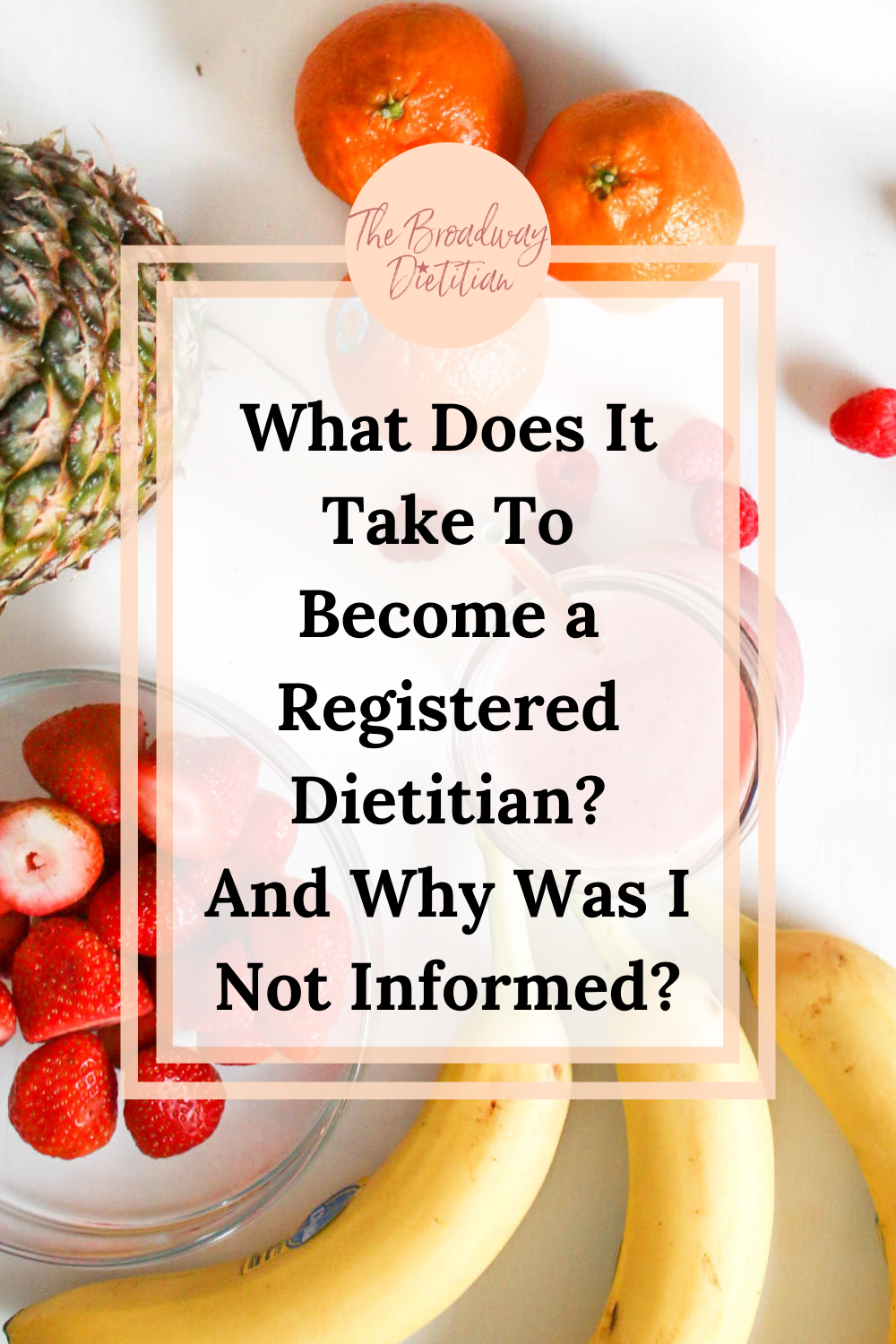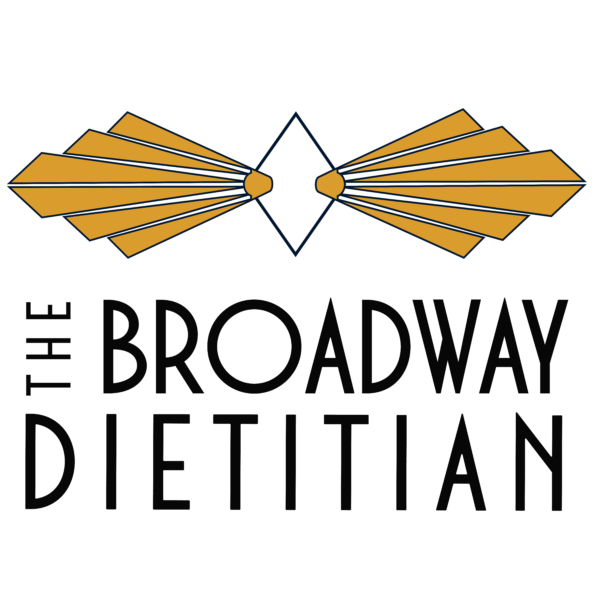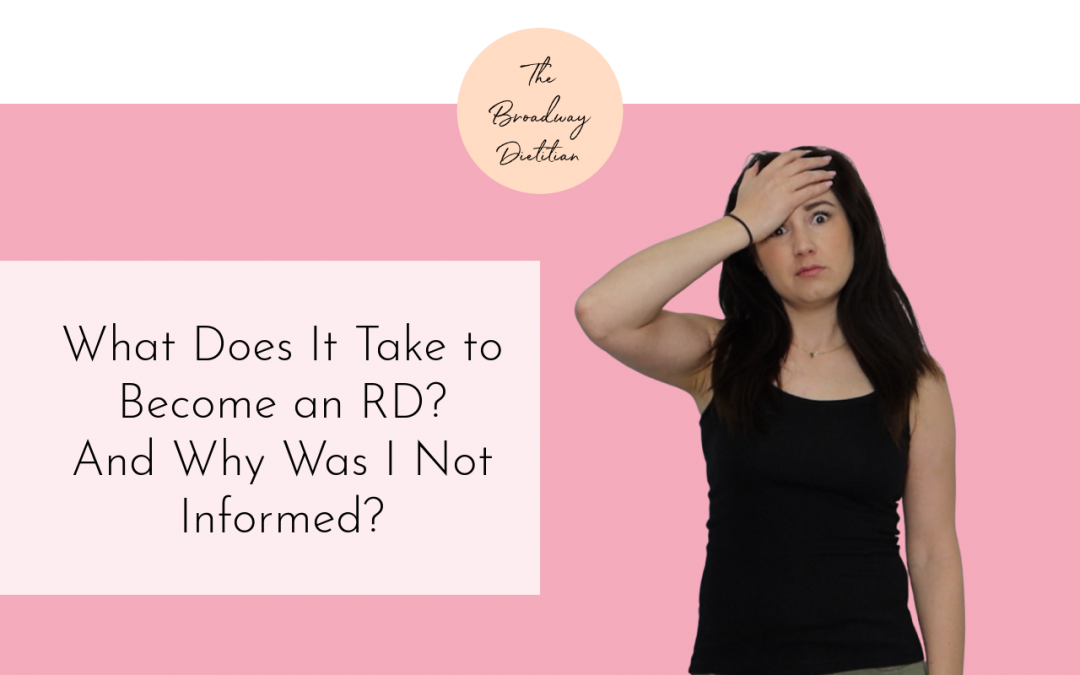What’s a Registered Dietitian?
Ok, so let’s start with what is a “Registered Dietitian” (abbreviated as “RD” or “RDN”)?
A RD is a nutrition expert who has at least a bachelor’s of science in the medical field of human nutrition. Many RDs work in clinical fields including hospitals, doctor’s offices, long-term care facilities, and similar. Other career options range widely from specialized private practice (what I do), to public health, teaching, R&D at food companies, research, and the list can go on and on.
To become a Registered Dietitian, there is a series of steps that is very regulated.
1. You need a Bachelor’s (and now required), and a Master’s of Science degree in Nutrition and Dietetics from accredited universities with a dietetics program. These degrees are similar to pre-med, in that there is A LOT of biology, chemistry, biochem, anatomy, physiology, and math. Major classes are all in human nutrition: medical nutrition therapy, metabolism, food chemistry, counseling, and specific classes like life-cycle nutrition, women and children, etc.
2. After obtaining your degrees you apply for a highly competitive dietetic internship, or “DI” as we call it. It is similar to an unpaid medical residency, where we have a minimum 1200 hours of supervised practice under RDs in various areas of practice from hospital and dialysis to public health and private practice. This is full time work, and some are combined with the Master’s program.
3. You completed the internship – yay! Now you apply for and take the national registration board exam. It’s on-par with the nursing board exam, but all related to nutrition. It’s ~140 questions in all areas of dietetics. If you pass this – CONGRATS! You’re a Registerd Dietitian!
4. But wait, there’s more: now you have to maintain your credential by doing at least 75 hours of continuing education every 5 years (not hard), at least 1 hour of which needs to be ethics. And you pay a annual fee to keep your RD. Additionally, most states have state licensure, which may require additional testing and/or money to be able to legally practice in the state.
RDs are uniquely qualified to interpret labs, provide medical diets, and do individualized nutrition counseling.
So what’s a Nutritionist?
“All Registered Dietitians are nutritionists, but not all nutritionists are Registered Dietitians.”
– Academy of Nutrition and Dietetics.
That quote sums it up, as in the U.S. the title of “nutritionist” is not regulated. Meaning that your nutritionist could be an RD, they could have great training, they could have taken a weekend course, or they could have just decided to call themselves a nutritionist.
Some important things to know is that, while a nutritionist can be very helpful/good at what they do, you are never sure of their medical knowledge, and they are not legally allowed to provide advice on medical diets. They can provide general nutrition education, such as “eat more veggies, and here is a list of them,” but they cannot provide individualized advice, especially as related to interpreting labs, medical conditions, or medications. Additionally, they cannot take insurance, which RDs can apply to be in-network with (though for most of us it is a pain-in-the-butt! That’s another rant for another day).
So if you are looking for general nutrition education like what is a carbohydrate? a nutritionist is fine to go to, but if you have health complications like an eating disorder or diabetes a dietitian is the way to go.
Ok, off that soapbox…
So what did I expect coming out of college, and how did that stack up?
Neither of those came true.
My journey was rough, as I ended up staying the the small town (I got married to a local) where I did my DI, which was saturated with experienced RDs. For a year and a half I applied to all kinds of RD jobs, interviewed, and got beaten-out by more experienced applicants.
While this was demoralizing, it was a blessing in disguise.
My first “real job” was a client who got me to start my business. She was going into college in town and her was relapsing into anorexia. I took her on and the rest is history (well, a story for another day, this is getting long). Shortly after I got a part-time job in public health and then teaching nutrition at a college, and corporate wellness…
It’s been a blessing to have so many amazing opportunities that wouldn’t have happened if I had gone straight into a hospital. I still haven’t made $60K+ a year, but my practice is thriving and I now have 4 employees. Even better, I feel like I get to have a real implant on individual’s lives as an eating disorder dietitian, and impact is why I got into this in the first place.
I hope this gives you a little insight into the field and my journey. There are plenty of stories to come, but know that you can make an impact in anything you love to do. So don’t hold back or give up hope. It’s coming.






